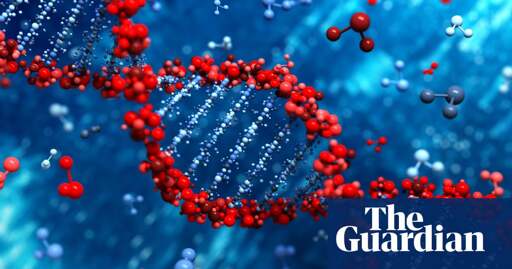World-leading scientists have called for a halt on research to create “mirror life” microbes amid concerns that the synthetic organisms would present an “unprecedented risk” to life on Earth.
The international group of Nobel laureates and other experts warn that mirror bacteria, constructed from mirror images of molecules found in nature, could become established in the environment and slip past the immune defences of natural organisms, putting humans, animals and plants at risk of lethal infections.
Many molecules for life can exist in two distinct forms, each the mirror image of the other. The DNA of all living organisms is made from “right-handed” nucleotides, while proteins, the building blocks of cells, are made from “left-handed” amino acids. Why nature works this way is unclear: life could have chosen left-handed DNA and right-handed proteins instead.
The fresh concerns over the technology are revealed in a 299-page report and a commentary in the journal Science. While enthusiastic about research on mirror molecules, the report sees substantial risks in mirror microbes and calls for a global debate on the work.



That is basically my suspicion, from my knowledge at this time. Pathogenicity as a danger seems questionable based upon how incompatible known life is with the opposite enantiomers of its basic building blocks (though, if artificial “mirror” bacteria were able to develop enzymes to change the chirality of the proteins, etc, it would probably be bad).
Going on that energy-intensive chemistry being tricky to accomplish, it is far more likely that generalists could displace extant microorganisms that may be unable to use their evolved defenses effectively. This could result in cascading food web disruptions until either extant life adapts, or complex organisms go extinct through starvation.
I have a question with my very limited knowledge of biology:
Currently, pathogens “use” certain resources in a host, and then the host’s immune system creates antibodies that eventually kill the pathogens (or the pathogen kills the host).
The arguments are: mirror pathogens would require mirror antibodies, which is not possible for natural bodies to produce. However, this is not really a problem because our physical selves as resources would be incompatible with the needs of a mirror pathogen.
My question is: mirror or otherwise, could a pathogen “hijack” something other than usual as a resource?
Let’s say, I don’t know, Prime Pathogen A normally uses Prime Protein A, Mirror Pathogen A would require Mirror Pathogen A. Is it possible for a host to have a Prime Protein B that meets Mirror Pathogen A’s requirement–perhaps not perfectly, but “good enough” to sustain Mirror Pathogen A?
This is a pretty good understanding. However, antibodies are only one tool in the immune systems of complex animals. There are also a number of specialized immune cells that perform jobs like patrolling the body to try to detect foreign cells and objects to “label” as invaders, or phagocytes that try to envelope and digest foreign cells and objects. Additionally, there are strategies like making the body a less hospitable environment by increasing the temperature (fever). Antimicrobial chemical production is also very common in single-celled organisms but identified in fewer complex animals.
Possible but, when looking specifically at the hypothetical “mirror” biology, less likely and probably would require specialized adaptations. The main problem that they would need to overcome, which is rather uncommon in known life is the mirrored shape of important biological molecules. Specifically, amino acids and sugars.
Both of these types molecules have a property known as “chirality”, where the atoms in the molecule can be oriented in two ways, while still all being bonded to the same neighbors. These are known as enantiomers and designated with the prefixes “levo” (“l-”), meaning left, and “dextro” (“d-”), meaning right. Biology as we know it is very specialized to make use of l-amino acids and d-sugars. There are some exceptions but they tend to be rather specialized and less energetically favorable.
Some organisms can break down d-amino acids and use their atoms as nitrogen sources to build new l-amino acids. It is much, much more common, however, to use l-amino acids from either the host cells or their proteins. This takes the pathogen far less energy to accomplish as well as not requiring evolving specialized enzymes that most organisms don’t have.
So, in the case of the mirror pathogen, it would have to have the ability and dedicate the energy to breakdown l-amino acids to build its d-amino acids. This would, indeed, likely result in slower growth rate. That, in itself, has a lot of potential to limit pathogenicity as high growth rate is generally required to be problematic. Phagocytes will still try to envelope and remove foreign objects that they don’t “think” are alive, so, the mirror pathogen could face risk of excretion if it is not able to reproduce quickly enough to maintain a population.
So, overall, yes, hypothetically possible and even plausible (if the mirror organisms are able to metabolize d-sugars and l-amino acids) but less likely. Pathogenicity requires the ability to grow a population fast enough or otherwise evade the immune system which is also able act on “invaders” that it does not recognize as biological (maybe being really good at building a bioplaque that makes it difficult to move or use of toxins). Simply having mirrored chemistry alone is probably insufficient to evade the immune system enough to be pathogenic.
Thank you so much for taking the time and effort to answer my question and helping me understand this (or at least understand it better). The world is fascinating!
You’re very welcome! The world is absolutely incredible and there is so much to learn about everything. I love it :D